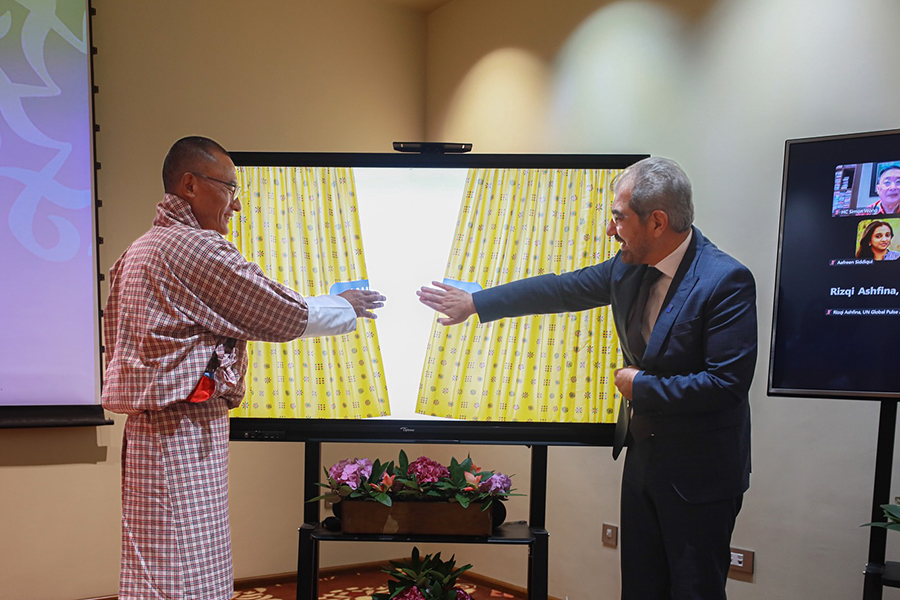 A new hub for fresh ideas and smarter policies has opened in Thimphu. The Bhutan Innovation Lab, launched today, brings together bold ideas, data and design to create people-centred policies. Led by the Prime Minister’s Office and Cabinet in collaboration with the UNDP, the lab will test new policy ideas and experiment with solutions by finding better ways to meet people’s needs.
A new hub for fresh ideas and smarter policies has opened in Thimphu. The Bhutan Innovation Lab, launched today, brings together bold ideas, data and design to create people-centred policies. Led by the Prime Minister’s Office and Cabinet in collaboration with the UNDP, the lab will test new policy ideas and experiment with solutions by finding better ways to meet people’s needs.
Although the lab was officially launched today, it was set up four months ago.
Manned by a team of six, the lab strives to provide policy advice, test solutions, and support the implementation of the 13th Five-Year Plan.
The team said they will offer innovative solutions to solve problems faced by agencies and individuals, including issues identified by themselves.
The lab will identify, establish, and augment strategies to accelerate the 13th Five-Year Plan and Bhutan’s 10x economic transformation vision. It will bring together government, civil society, the private sector, academia and citizens to co-create impactful solutions to some of the pressing national development challenges.
These solutions will be tested for effectiveness before scaling through people-centred and innovative design approaches, helping the government to make smarter, safer and more effective decisions.
“You can innovate, use the Bhutan Innovation Lab as your safety valve. There will be some agencies, some officials, who want to do things differently, but really don’t know how to begin. Again, that’s where the Bhutan Innovation Lab will come in. We will sit together and let’s work together. And only then will we be able to overachieve the targets of the 13th Five-Year Plan,” said Tshering Tobgay, Prime Minister.
“So the establishment of the lab is providing a platform for policy innovation because today’s complex development challenges require agile, adaptive policies. So the key function of the lab is to look at the frontier development challenges, as we call it and provide a deeper analysis. So, that is the key purpose of the lab and that is centrally anchored in His Majesty’s vision for Bhutan, but also the 21st-century economic roadmap of Bhutan,” said Mohammad Younus, Resident Representative, UNDP Bhutan.
One of the lab’s first initiatives is to improve the hospital appointment system and make it more efficient and patient-centred.
As part of the effort, health professionals, policymakers, and citizens worked closely together, examining the broader healthcare ecosystem and pinpointing persistent issues with the current appointment process.
Drawing on these insights, the team, together with the National Medical Service and Ministry of Health, developed solutions that prioritise accessibility, efficiency, and user-friendliness of the appointment process to improve the experience for patients and healthcare providers alike.
The National Medical Service and the National Referral Hospital will roll out the solutions in August or September this year.
The Lab has also conducted a two-month, systems-based analysis of Bhutan’s tourism sector with a goal to align with national economic goals. As part of the effort, the Lab identified barriers, risks and opportunities. Based on these insights, the Lab is now designing sequenced, high-impact solutions.
Singye Dema
Edited by Sonam Pem







